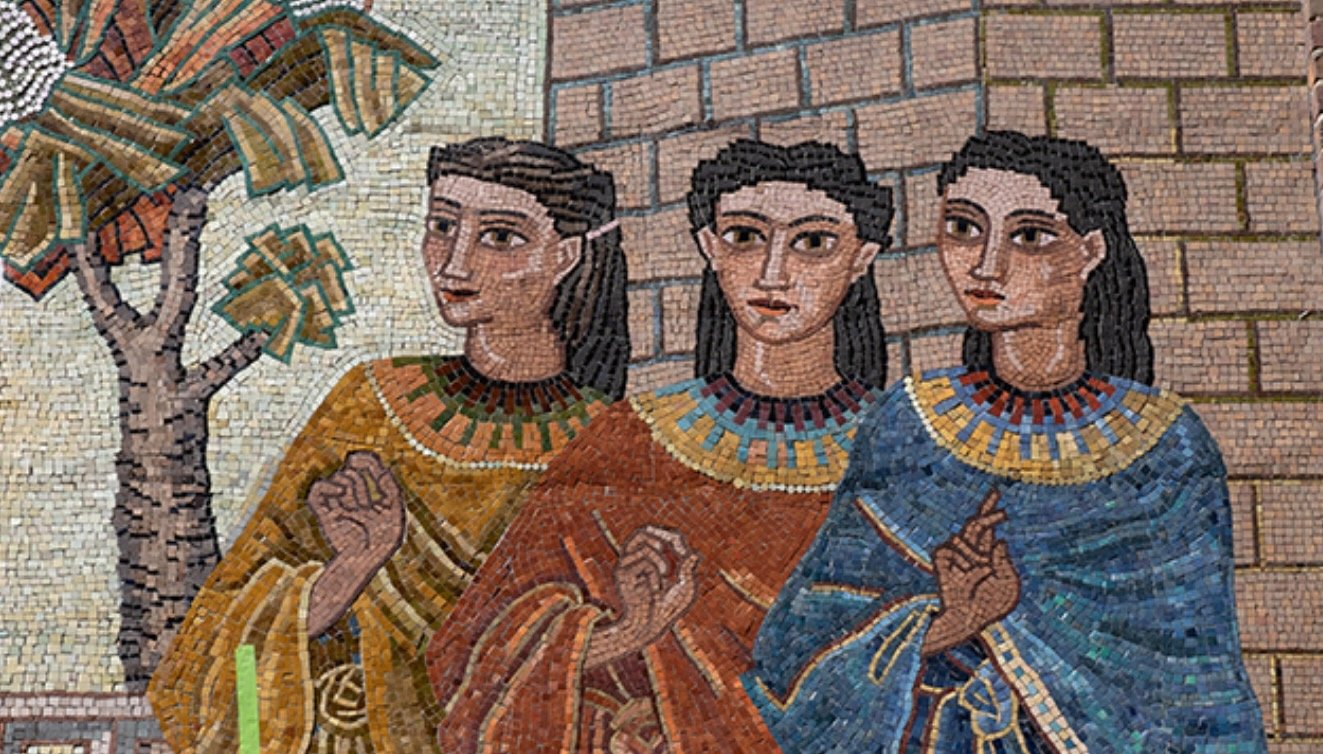Listen to this week’s blog:
Heartbreaking. No other word could describe the suffering of Job. His tale reads like high drama, yet Job was a real man whose life was shattered by great pain and loss.
As the story opens, Job is revealed as a righteous man, none other like him.
The next scene shows Satan, the “Accuser,” in a discussion with God. God asks Satan if he has noticed the faithful Job. Satan claims that Job follows God only because of the benefits he receives from God. In response, God allows Satan to afflict Job in every possible way. Job loses all his possessions, all his children and then he is stricken with sores covering his body.
Job is in such misery that he sits in ashes, scraping the tormenting sores with a shard of pottery.
Job's wife experiences all of the same losses except for the physical affliction. In deep pain, she tells Job to curse God and die. But Job remains faithful.
Enter Job’s three friends to offer him solace. They try, but fail miserably, offering ineffective comfort while suggesting that Job may have caused his sufferings by offending God in some way. Throughout the chapters, Job speaks confidently of God, saying “I know my Redeemer lives,” and rehearsing the details of his own heart for people and for serving God. His words are graced with wisdom. But he also questions why God has allowed his horrible suffering.
Finally God speaks directly to Job, reminding him in extravagant poetic imagery who has created this magnificent universe and who is Lord over all. But no explanation is given regarding the reason for his suffering. Job, humbled, repents of challenging God and for demanding answers.
God requires that Job’s three friends offer a burnt offering for their folly for assuming Job had wronged God.
It is after Job repents and offers prayer for the three friends to be forgiven that God begins his work of restoration for Job. First his possessions are returned two-fold. His painful skin condition is healed. His extended family comes to comfort him. In time he has another ten children, as before seven sons and three daughters.
In the few verses about the three daughters, much is revealed about the dynamic nature of God’s power to restore. We learn they are the most beautiful women in the land. We are told their names. This is significant in that we never learn the name of Job's wife or any of the other children. The first daughter is Jemimah meaning “Dove,” a gift of peace. The second is Keziah which was a perfume and related to the oil of anointing, suggesting a fragrant life and a pleasing aroma rising up to God. The third is Keren-happuch, a name related to eye shadow, indicating beauty. Their names convey an outward expression of an inner quality.
We learn they are given a portion of the inheritance. This is highly unusual in ancient times. It represents their elevated status and Job’s gratitude for God’s provision. It suggests that the restoration of Job’s fortunes go far beyond anything Job could have imagined or his daughters were entitled to.
The three daughters offer a sharp contrast to Job's "comforter" friends. Likely they provide their dad, Job, with extraordinary love, care and comfort as he lives out the remainder of his life. And in generosity he provides their unusual inclusion in the inheritance. They represent God’s attention to relationships, which is the greatest aspect of Job’s restoration.
We are given this small glimpse of Job's final years. It is a wonderful commentary on a life of faith, as well as the lovely relationship of a father and his daughters. The curtain falls on the story, "and Job died, an old man, and full of days."
This story of beauty from ashes leads us to consider how we can be part of God’s restoring work. How can we as daughters, sisters, wives, mothers, or friends bring comfort or encouragement in our daily relationships? On a wider stage, are we intentional about bringing help and healing to our broken world?
May the faith legacy we are building be graced by the beauty of restoration.
ABOUT OUR BLOGGER
Linnea Tideman has always enjoyed sharing stories. Her childhood in New Hampshire and her Swedish heritage have provided her with a wealth of experiences, but also the foundation of her faith. She enjoys creative projects, travel, books, sewing, gardening, but most of all hospitality, often hosting fancy teas and occasionally something grand like recreating dinner on the Titanic. She serves the UrbanPromise and Good Neighbors ministries. Linnea lives in Landenberg with her husband Dave. They have three grown daughters. She hopes that her writing reflects how God continues to reveal Himself to us as our shepherd and Savior.

